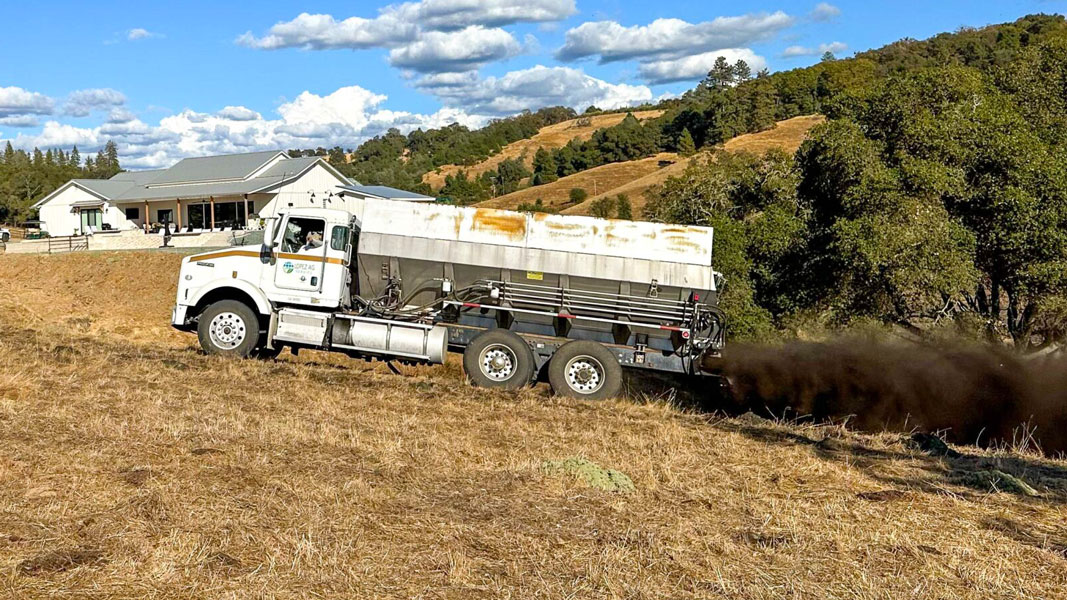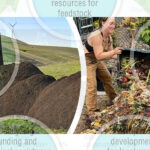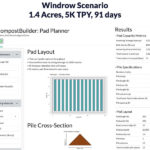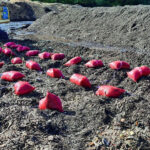Top: Compost being applied to agricultural lands. Photo courtesy Placer Resource Conservation District
California’s SB 1383 climate law designed to cut methane emissions by keeping organic materials like food scraps and yard clippings out of landfills requires that every city and county in California purchase and distribute compost, mulch, or renewable natural gas in amounts tied to their population size. The Placer County Resource Conservation District (Placer RCD) launched a pilot compost cost share program to help the City of San Mateo meet these procurement targets while making compost more accessible and affordable for local farmers and ranchers to help with nutrient cycling, boost biology, build soil structure, and improve infiltration and water holding capacity. Compost can be used on rangeland, cropland, orchards, vineyards, and pastures. Successful applicants will receive up to $67/ton in cost-share assistance covering most, if not all, of the compost and delivery costs directly to their farm or ranch (the cost for spreading is not covered under this program). The Placer RCD must source compost from approved compost facilities that are certified by the state of California.
Each recipient must be able to accept a minimum of 20 tons of compost (sufficient for roughly three working acres at a 6-ton/acre application rate). No single farm or ranch business may receive more than 120 tons of compost (sufficient for approximately 20 acres). Applications will be reviewed in the order they are received until 2025 funds have been exhausted; eligible applicants must be actively engaged in the business of farming or ranching within the Placer RCD service area. The pilot program aims to reserve 700 tons of compost to be allocated to producers with 25 acres or less in production.













